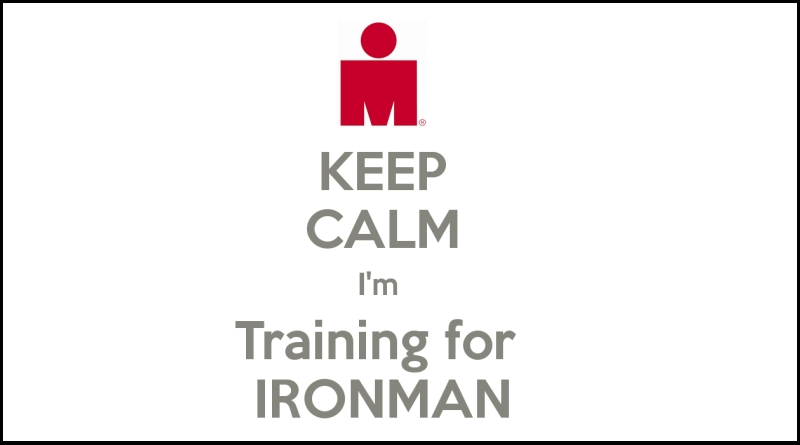The Ups and Downs of Ironman Training

If you have ever trained or are in training for an Ironman, you will know that it is an experience like no other, especially if you are an ironguides coached athlete on a daily dose of The Method training programme.
Whether you are an Ironman veteran signing up for your 7th tour of duty, a top 70.3 age – grouper stepping up to race with the “big boys”, or a brand newbie that’s caught the bug and wants to get one under your belt ( “What’s all the fuss about?” ), the demands of Ironman training will stretch you to your physical, emotional, psychological limits.
The Ironman training cycle is a crazy rollercoaster ride that can take you from good days, filled with hope and confidence to nightmare “off” days that will leave even the fittest athlete discouraged and questioning their ability to even cross the finish line.
This article offers advice on how to spot the patterns of overtraining and how to minimise the “down” days for a more balanced, manageable and effective training cycle.
OVERTRAINING
If you are forcing yourself to get your sessions done for fear of losing fitness and you find yourself half-heartedly “going through the motions”, while getting more tired and desperate as your performance drops- Listen up!
The most common presenting symptom of an athlete who is over-trained is not “Coach, I am so tired, I need a break”. Rather, it is “Coach, I’ve been training hard but I am not improving, I think I need to do more.” The athlete’s drive to excel is so strong that they end up burning the candle at both ends, giving up personal “down time”, recovery and sleep to maintain high levels of work, family and triathlon training commitment. From my experience, the most tell tale signs of an athlete that is overdone are:
- Malaise and constant fatigue
- Immune-compromised state
- Unhealthy obsession with (lack of) improvement
- Loss of enjoyment of the sport
- Loss of trust and faith in their training
- Continual weight loss
- Decreased motivation
- Flat/ jaded personality
- Refusal to admit that they are over-done.
Without timely and well considered guidance, this athlete is headed for trouble.
The risk of overtraining is especially high in the last 6 weeks pre-race- in the middle of the final loading phase. An athlete that has been training hard for the last 4 – 6 months will want to push even harder in order to “cram” in more training before you winding down and resting up for the big day. Here are 3 common situations that can make this last month and a half a tricky patch to navigate:
1) Your dedication and consistency have paid off and you’re fittter than you’ve ever been. You feel invincible and the temptation is to push even harder through the “home stretch” looking for that last 5%.
Quick Fix: If you are feeling good at this stage keep up the good work and don’t bury yourself in the “hardcore” tunnel. Aim to finish each session feeling great, keeping something in the tank for the next day. Aside from getting more rest- don’t change a thing! Unless you have planned it carefully with your coach, don’t turn up the volume or intenisty knob all of a sudden. Overreaching requires a carefully thoughtout recovery period.
2) You only have a handful of weeks left before you need to taper. Your preparation has been a little patchy and your insecurities are surfacing. You think that by hammering every session in the last few weeks will make up for lost time and missed sessions earlier on.
Quick Fix: Don’t panic. Speak to your coach and let him know exactly what has been going on and how you are feeling overall. Recap calmly what you have done and how far you have come since the start of your journey. Chances are that you’ve caught it early enough to salvage the race and you realise that you’re not in that dire a situation. Your coach will know how to tweak your plan to freshen you up while highlighting the key workouts that you must get done. At this point you may need to manage your race day ambitions but this doesn’t mean that you can’t have a great day out.
3) Because of your high training load and the length of time that you have been at it, your body’s immune system, normally used to fight daily germs and bacteria, has been working overtime to regulate muscle and tissue recovery instead. As a result, you fall into an immune-compromised state and pick up colds and flus that don’t go away. You try to train through it but end up even sicker, performing worse and fearful that you’re losing fitness.
Quick Fix: Alert your coach immediately and spell out clearly how long you’ve been under the weather and what training you have done while ill. Your 1st priority is to return to 100% fitness. Load up on Vitamins and antioxidants, get as much sleep as you can and drop the volume of each session to a maxium of 40mins and back off on the intensity by a few nothces too. By doing this, you are are keep the relevant systems “open” and “warm” but not enough to affect your immunity any further. Your coach should tweak your plan for a few days of “unloading”.
In all these situations, you will notice that bringing your coach into the equation is a critical and one of the the first things your should do. It will make the difference between “getting though the race” and arriving at the start line fresh, focused and full of energy. The sooner you speak to your coach, the quicker he can get you back on track rested and refocused on the end goal- your best performance on the big day. This brings me to my next point…
COMMUNICATION
A coaches job extends much further than dishing out training plan after training plan. Don’t wait until you are a burnt-out zombie, shell-of-a-human-being before approaching your coach for help. Timeliness is key.
Your coach’s role is to get you as fit as possible for race day. At times, this might involve a gentle nudge or cracking the whip- at other times, his job is to rein you in from the edge of burnout or in the worst case scenario, nurse you back to health and sanity. A good coach will know:
- Your personality/ lifestyle
- Your current training load
- How far along the training cycle you are
- The current stressors on your life
At times, it is difficult to consider all these factors from inside the Ironman bubble so if you need a little extra guidance make the effort to elaborate on how your training has been going. Together with the usual training parameters and assessment of your current perceived level of fitness, some feedback on how you are feeling and your emotional state ( especially your doubts ) will provide your coach with a good insight into how you are coping and what you need to work on.
A good coach will not judge you on what training you have/ or have not completed. Stay open to your coach’s questions and suggestions and share openly with him your goals and motivations. If you catch it early and nip it in the bud, all that maybe required is a weekend off or a few days/ a week of unloading to get refreshed. But keep these things to yourself and you run the risk of digging yourself deeper into the lonely hole of overtraining.
ENVIRONMENT
Even before you sign up for an Ironman, there are a few simple steps to tip the scales in your favour.
The majority of age–groupers today work a demanding 10 hr day. Many are married / with a long term partner and have young families. Before jumping online at 4am to wait for registration to go live, examine your calendar 6 months before race day. Are you getting married/ having a child/ moving house/ country/ changing jobs/ starting a new business/ going to be involved in other big “life” situations? All these things will factor into your training, recovery and performance, especially the 2 months before race day. You will enjoy a much more balanced and successful journey if the forecast of life’s big stressors and events reads relatively “normal” and “boring”. Of course there is no way to predict the future, but an uneventful half year window is a good place to start your Ironman dreams.
Secondly, have that chat with your partner/ wife – The one that starts with “Baby/ Dear/ Darling, I am thinking
of doing an Ironman next year…”
It is of utmost importance that you have buy-in from your loved one because, as much as you think you’re doing all the hard work, they will be the ones playing a major supporting role. Extra understanding and support could make or break your race preparation.
Explain what is an Ironman and why you want to do one (or another one). It is important to give them an idea what kind of training hours are involved. This will help them to appreciate and give reason to what you will be putting yourself through. Your coach is the best person to advise you on the different time commitments required for the different phases a typical Ironman training cycle.
By including them into your decision making process, you are also giving your partner a time frame so that they can appreciate and be mentally prepared for those days/ weeks when you don’t need the extra distractions and social gatherings because you will be more tired than usual. In all fairness, it also allows them to look forward to when they can have a fully present and energetic partner back in their lives!
It is a good idea to take it a step further to roughly plan out your allocated training hours with them. As you proceed, daily duties and responsibilities will surface, and together you will be able to discern much more clearly which are the most convenient tasks for you to stay engaged in to pull your weight.
CONCLUSION
I hope this article has given you some insights into some of the common pitfalls surrounding Ironman training and how to avoid them. Training is not all a bed of roses nor should not be viewed as an excuse for unlimited hours of swimming, biking and running. To get it right and nail it on race day requires a delicate balance of training and recovery guided by a close working relationship with your coach and an understanding and supportive home base from which to launch your adventures and live your dreams.
By : Coach Shem Long | ironguides.net
For : SWIMBIKERUN.ph
ironguides is the leading Lifestyle Facilitation company for athletes of all abilities. We provide coaching and trainingservices, plans and programs, as well training education, health and fitness products to help you learn and live a healthy lifestyle. Come get fit with one of our monthly training subscriptions, event-specific training plans, coaching services,a triathlon training camp in an exotic location! ironguides also provides Corporate Health servicesincluding Corporate Triathlons, Healthy Living retreats and speaking engagements. At ironguides, your best is our business!
Featured image :sd.keepcalm-o-matic.co. uk/i/keep-calm-im-training-for-ironman.png












